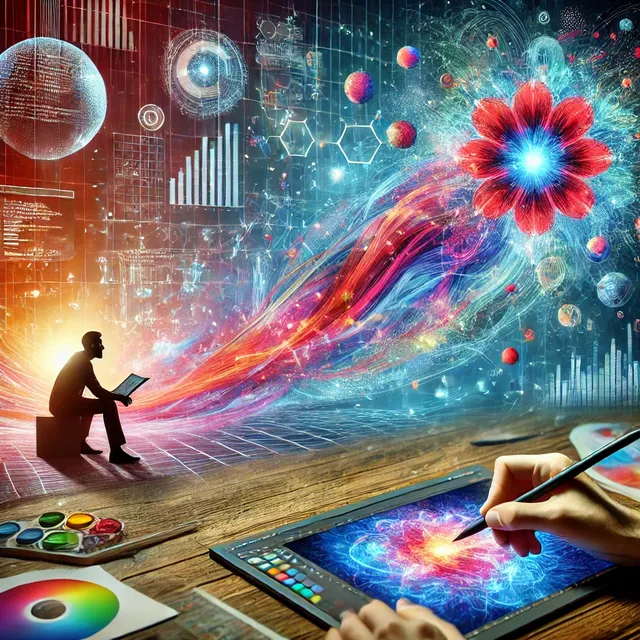The Rise of AI-Powered Creativity: How Generative AI is Shaping the Future of Content Creation
In 2024, one of the most talked-about topics in both tech circles and creative industries is the rise of generative AI. This technology, which allows machines to create content that once required human imagination, is quickly transforming how we think about creativity and content production. From AI-generated art to automated journalism, the impact of this technology is being felt across multiple sectors, and it’s sparking both excitement and concern.
What is Generative AI?
Generative AI refers to algorithms, often driven by machine learning models like GPT (Generative Pre-trained Transformer), that can produce new content based on the data they've been trained on. This content can range from text, images, music, and even video. Unlike traditional AI, which follows predefined rules, generative AI learns from vast amounts of data and can generate outputs that are creative and novel.
Why is Generative AI a Hot Topic?
Redefining Creativity: One of the most compelling aspects of generative AI is its ability to create. Artists, designers, and writers are increasingly using AI tools to assist in the creative process, leading to entirely new forms of art and literature. AI-generated images, for instance, are being showcased in galleries, while AI-written books are being published, challenging our traditional notions of creativity.
Efficiency in Content Creation: For businesses, generative AI offers a way to streamline content production. Marketing teams can use AI to generate social media posts, articles, and even product descriptions at scale. This not only saves time but also reduces costs, making high-quality content accessible to even the smallest of businesses.
Ethical Concerns: With the rise of generative AI comes a wave of ethical questions. Who owns the rights to AI-generated content? How do we ensure that AI isn’t perpetuating biases or misinformation? The ability of AI to produce deepfakes—realistic but fake images or videos—has also raised alarms about the potential misuse of this technology.
Impact on Jobs: As AI becomes more capable of producing content, there’s growing concern about its impact on jobs traditionally held by humans. Writers, graphic designers, and even musicians are questioning whether their professions will be replaced by machines. While some see AI as a tool to enhance their work, others fear it could lead to widespread job displacement.
The Future of AI and Creativity
As generative AI continues to evolve, its influence on creativity and content creation is expected to grow. Many experts believe that while AI will take over some aspects of content production, human creativity will remain irreplaceable. The most successful creators may be those who learn to collaborate with AI, using it as a tool to enhance their own creative processes.
At the same time, regulations and guidelines will likely emerge to address the ethical and legal challenges posed by generative AI. As society grapples with these issues, the conversation around AI and creativity will continue to be one of the most important topics of our time.
Conclusion
Generative AI is not just a technological trend—it’s a profound shift in how we think about creativity, work, and the future of content. Whether you’re an artist, a business owner, or simply someone interested in the future, the rise of AI-powered creativity is a topic that deserves your attention. As we navigate this new landscape, the challenge will be to harness the power of AI while ensuring that human creativity continues to thrive.
